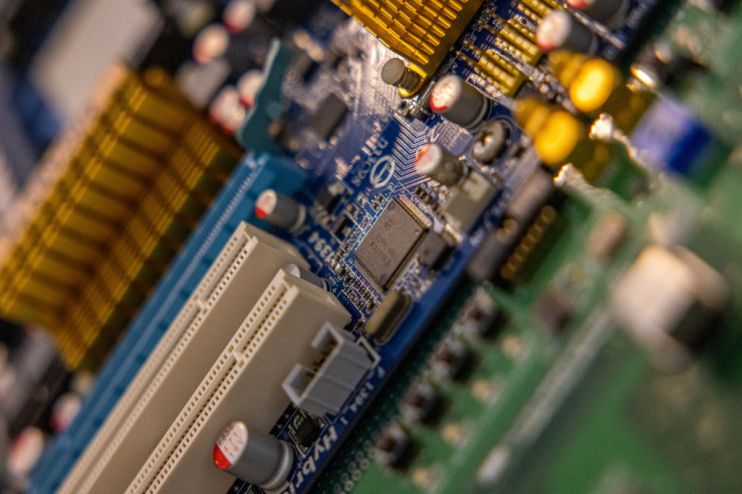Sunak must bet big on our semiconductor industry – or we’ll lose out to competition

Rishi Sunak’s in-tray is overflowing with crises: from the cost of living to supporting Ukraine, from settling the UK’s long-running dispute with the EU about Northern Ireland to the fate of his controversial home secretary.
But the prime minister also needs to address long-running issues which his predecessors have neglected. Among these is how to protect the UK tech industry.
Global upheaval is underway. The US has unleashed restrictions to crimp China’s semiconductor sector, but these could harm many Western tech firms too. The EU has a strategy to cope. It will spend billions of euros boosting Europe’s chip ecosystem and is implementing stricter digital competition rules to support EU-based tech start-ups. The UK government, however, is asleep at the wheel.
If Sunak is to protect British tech, he must show the UK government is open to business. Previous business secretary Jacob Rees-Mogg delayed for a third time the government’s decision on whether a Chinese firm should be forced to reverse its purchase of Newport Wafer Fab, a UK chip-making plant. The appointment of a new business secretary, Grant Shapps, means further delays. The deal has been in limbo for 18 months now.
Scrutinising Chinese investment is sensible, but reversing the deal now would send a chilling warning to other potential foreign investors. Newport Wafer Fab’s chips could be made in the US and EU, both of which are subsidising new chip-making capacity. While some in the industry claim that Newport Wafer Fab could become a global leader, its employees have begged the government not to return it to being a “mis-managed, undercapitalised start-up”.
Our country needs to move onto important questions. The first is how to get digital competition working better. Sunak and his two predecessors promised to constrain the power of the biggest digital platforms to make tech markets more dynamic and innovative. Yet a draft law is yet to be tabled in parliament. As the EU has already passed a similar proposal, British tech firms may soon conclude they have better opportunities on the continent.
The second question is about the UK’s semiconductor industry’s future. Global trade in chips is becoming more politicised and other countries are lavishing billions to support their own chip sectors. Sunak seems unlikely to match such profligate financial support. So the UK needs to be smarter in how it assists the sector. It can do that by leveraging its comparative advantages.
Britain has nurtured world-leading firms, like Arm, Graphcore and Imagination, which design chips. It is also leading in certain niche technologies. Not all of these niches will take off – but many will. Taking bets on emerging chip design technology, and co-operating with the US and the EU to keep supply chains open, makes far more sense than entering a global subsidy race.
For this strategy to work, the UK must make it attractive for industry stars to remain British. The UK’s biggest chip designer, ARM, is very likely to list on the Nasdaq, rather than in London. Too few UK investors take long-term, high-risk bets which result in digital giants like Apple and Google.
Successive prime ministers have adopted a chaotic approach to the UK tech sector. Too much time has been wasted on finding ‘Brexit dividends’ and reviewing a single deal that will have no impact on the UK’s prosperity. Too little has been spent on developing – and actually implementing – a strategy for the UK to cope with growing geopolitical tensions, competition problems and other countries’ protectionism.
